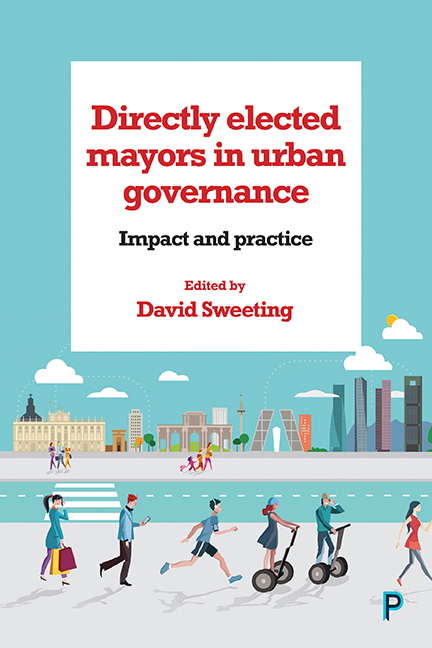seven - The two worlds of elected mayors in the US: what type of mayor should cities choose?
Published online by Cambridge University Press: 05 April 2022
Summary
Introduction
In the US, the issue of electing mayors is complex and segmented, and it has changed over time. It is linked to additional issues related to form of government and professionalism in the governmental structure. The questions about mayors and the settings in which they operate have been raised can be summarised as follows in historical order:
1. Whether to change from a weak mayor-council form with fragmented authority to a strong mayor-council form arose in many cities particularly larger ones in the 1880s and was advanced by the Model City Charter in 1900.
2. Whether to shift from the mayor-council form to the council-manager form starting in the 1910s. A mayor chosen by the council from its members was part of the Second Model City Charter approved in 1915.
3. Whether to shift from council selected to directly elected mayor in council-manager cities was a continuing question. Direct election cities were a majority by 1965, but selection from within the council was still advocated by some traditional municipal reformers.
4. Whether to shift from council-manager to mayor-council form of government has been considered particularly in cities over 100,000 in population since 1990, although the conversions have been rare.
This chapter briefly reviews the arguments that supported the two major forms of government in points one and two from this list. There is a short discussion of point three – the choice between selection of the mayor within the council and direct election in council-manager cities. The chapter primarily examines the arguments made in support of the two major sets of alternative form of government and two types of elected mayors – point four. The choice is between a form of government based on unified authority as found in a parliamentary system – the council-manager form – or one based on separation of powers between the mayor with executive authority and the council with legislative authority – the mayor-council form. In other words, the question is not whether to have an elected mayor but rather about the institutional setting in which the mayor operates and the style of leadership associated with each setting.
- Type
- Chapter
- Information
- Directly Elected Mayors in Urban GovernanceImpact and Practice, pp. 103 - 120Publisher: Bristol University PressPrint publication year: 2017



